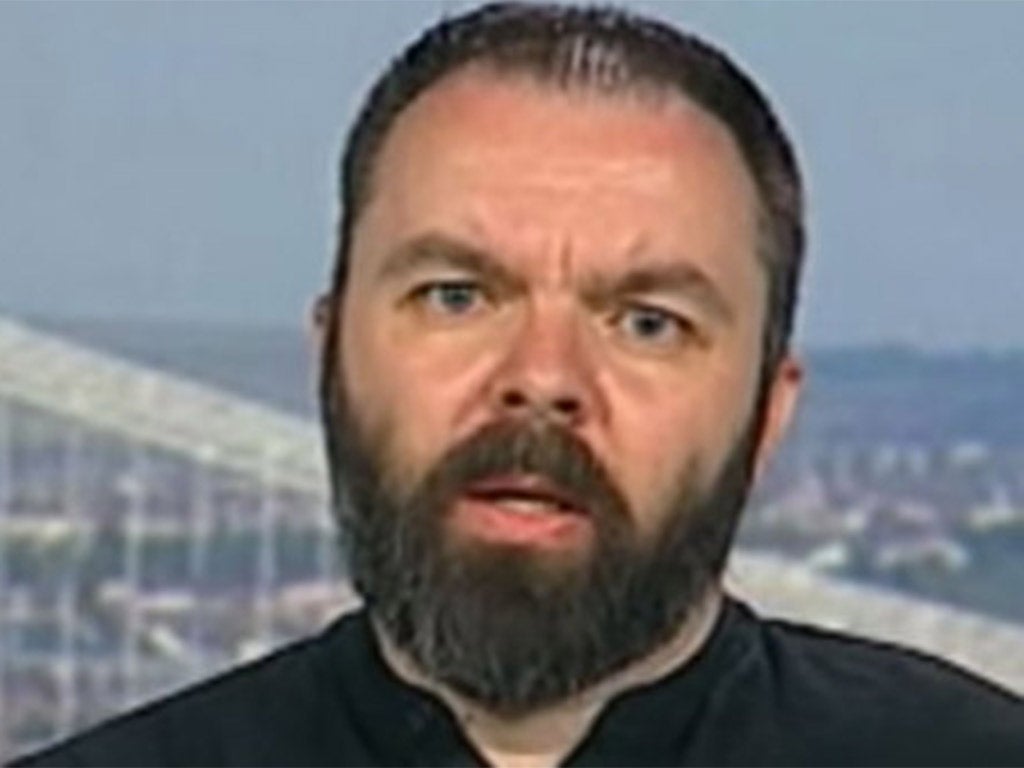Scottish independence: The rise of the 'cybernats' - who might just win it for the Yes side
CyberNats may be nasty, but the Yes movement’s web operation is slick, successful and may win them the election

Neither the imminent arrival of England’s most powerful politicians nor a rallying of the ancient bowler-hatted forces of unionism this weekend were doing much to dent the bravura of Scotland’s leading "cybernat" today.
“So: tomorrow Cameron, Clegg and Miliband, Friday Farage, Saturday the Orange Order? Man, we're doomed,” tweeted Wings Over Scotland.
With more than 20,000 Twitter followers, and 600,000 unique readers a month for his website, the creator of Wings – the former video games journalist Rev Stuart Campbell - has become a key figure in the online independence referendum battle, which few doubt has been won hands down by the Yes campaign.
The rat-keeping pastor, who resides in the genteel English city of Bath and is unable to vote in next week’s vote, has become a hero of the nationalist cause – not least since the astonishing surge in the opinion polls this weekend.
But he has also become a magnet for the animosity of No campaigners in a cyber-debate which has become increasingly impassioned and, some might argue, poisonous as polling day nears.
Mr Campbell, 46, says he has twice been forced to call in the police after receiving death threats in relation to some of his more excoriating posts, a claim which has been questioned by his opponents.
“I get absolutely torrents of abuse every day from people wanting to fight me and punch me. Most of it is just shouting on the internet. But every now and again you get one which is faintly plausible and then you have to get the police involved,” he told The Independent.
The role of so-called cybernats came to the attention of the London media in the wake of the horrific trolling of author JK Rowling when she went public with her support for the unionist cause.
Described by the Scottish Daily Mail as the “foot soldiers of the Pro-Scottish independence army whose online poison shames the Nationalists”, it has been easy to dismiss the bloggers and Tweeters as a lunatic fringe in the debate.
But to do so is to overlook the extraordinary impact of social media on the battle so far. Founded just three years ago, Wings is the largest dedicated political website in the Yes campaign. It is the leading brand which along with Bella Caledonia and NewsNet Scotland, has given a potent voice to the grass roots independence cause on the web and in social media.
“I have never been a member of a political party. I have never voted for the SNP; in fact I voted Liberal Democrat for the past 23 years, although never again,” explained Mr Campbell.
“I have always been a supporter of independence, and after the SNP won in 2011 and it became clear there was going to be a referendum, I went looking for a website which I thought needed to exist and didn’t,” he added.
With crowdsourced funding to the tune of £150,000, he has not only issued more than 86,000 Tweets but produced the Wee Blue Book guide to the vote, which he says has been downloaded 400,000 times.
The No side, he claims, has been forced to rely on the support of newspapers which, with the exception of the Sunday Herald, have all come out in favour of the status quo.
Another influential nationalist blogger, with 2,600 followers on Twitter, is Melissa Murray, 45, a company director in the oil and gas industry originally from the United States, who previously worked on the Obama campaign while living in London in 2008.
She believes social media and Scottish independence are natural bedfellows.
“It tends to be younger more progressive people who tend to be on social media. I think it is a different way of campaigning and the status quo has not caught up yet,” she said.
“It feels like the No campaign online has been dictated by the Labour or Conservative Party HQs – it just doesn’t feel very emotional or passionate. It’s not like you feel they really believe in it but are just regurgitating what they have been told to say,” she added.
Andrew Skinner, founder of the Scotlandsaynaw website is a leading online light in the unionist cause. His Facebook site has 60,000 likes and he has 4,000 Twitter followers.
Despite this success the 29-year-old from the East End of Glasgow, who recently graduated from Caledonia University, concedes it has been an uphill struggle.
“Even before there was a Yes Campaign the nationalists had won it online – they had already been campaigning for five or six years. When the referendum was launched their social media activists were ready and waiting. Credit where credit is due I think we have won the debate but we have not won the vote yet,” he said.
Join our commenting forum
Join thought-provoking conversations, follow other Independent readers and see their replies
Comments
Bookmark popover
Removed from bookmarks